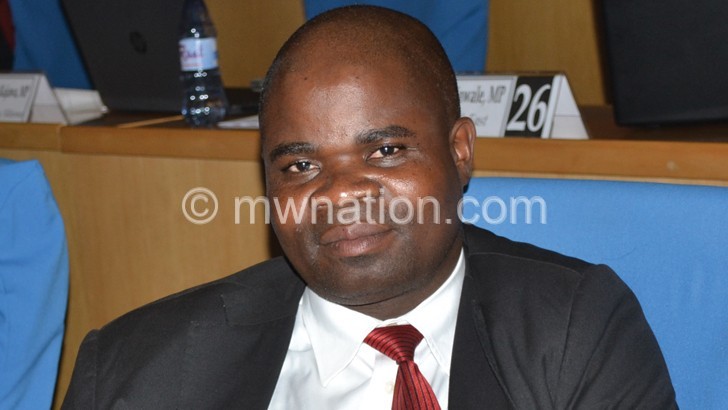Trim presidential powers in MEC appointments—Committee
The Legal Affairs Committee of Parliament has proposed a reduction of presidential powers in the appointment of commissioners of the Malawi Electoral Commission (MEC).
The committee made its position known yesterday when it met representatives of the Malawi Law Society (MLS) at Parliament Building in Lilongwe as part of its consultations on the Electoral Commission Act (Amendment) Bill which Parliament referred to the committee last December.
The current law gives all the powers to the President to appoint the commissioners, a development the committee said affects the management of the electoral process.

is very dangerous
The House debated Bill number 23 of 2017, the Electoral Commission Act (Amendment) Bill, before referring it to the Legal Affairs Committee for scrutiny.
Among other things, Clause 3 of the Bill presented in Parliament dealt away with the consultation of political parties represented in the National Assembly in the appointments of the commissioners.
In an interview after the meeting yesterday, committee chairperson Maxwell Thyolera said it was worrisome and unfair to entrust all the powers in appointing MEC commissioners in the President.
He said: “The position in the Bill is very dangerous. Presently, the commissioners are dominated by one political party. This affects the outcome of the elections and, as you heard, the members suggested that this should be removed and allow parties to present their own candidates and let the President choose from that. We feel that should be a must.”
Mzimba South West legislator Khumbo Kachali, who is also a former State vice-president, said there should also be a provision to remove a panel involved in the appointment of the commissioners.
He said: “There should not be a panel for the appointments. It should totally be removed. The panel isn’t transparent and it cannot be trusted.”
But Malawi Electoral Support Network (Mesn) chairperson Steve Duwa, who appeared before the committee on Monday, held a different view on the panel.
He said having a selection panel is a better option as it would ensure the independence of MEC.
Said Duwa: “The panel is a better option in bringing sanity in the electoral system. It brings independence to MEC.”
In their presentation, MLS executive committee member Martha Kankonda also said the panel was a greater option for the appointments as it would scrutinise the candidates to ensure only those fit for the posts are appointed.
She said: “The model proposed by the Special Law Commission was very good. But since the members have suggested otherwise, I think it would be better if the Special Law Commission also saw the suggestions and come up with a concrete decision.”
Section 75 (1) of the Constitution outlines the appointment of MEC commissioners to be not less than six.
The appointment is regulated by the Electoral Commission Act whose Section 4 provides that the President shall, subject to the Constitution and in consultation with the leaders of political parties represented in the National Assembly, appoint suitably qualified persons to be members of the commission on such terms as the Public Appointments Committee of Parliament shall determine.
The Electoral Commission Act (Amendment) Bill was the only survivor from a set of Electoral Reforms Bills Parliament rejected in December amid tension between government and the Public Affairs Committee (PAC).
The others were Amendment of Section 80 (2) of the Constitution and Section 96(5) of the Presidential and Parliamentary Elections Act (PPEA) proposing 50-plus-one majority in presidential election; Consolidation of PPE Act and Local Government Elections Act; Amendment of Section 81 (3) of the Constitution for swearing-in of President and Vice-President to be done after 30 days.
There was also the Assumption of Office of President Bill to provide for the establishment of a transition team before a President assumes office and; Amendment to Section 62 of the Constitution where each district would provide a single constituency in which only women would contest as candidates for member of Parliament.






+27737053600 Call Agent Shamie and join. It’s optional to join the most powerful secret society in the world Illuminati, we don’t force any one to join as it’s you your self to decide your future. call the agent on +27737053600. You will be guided through the whole process and be helped on how to join the occult. Hail 666
https://uploads.disquscdn.com/images/1df7c371950b4ce970687ab11886a2abe192a4a85c9a9181d66671ff6ef90048.jpg